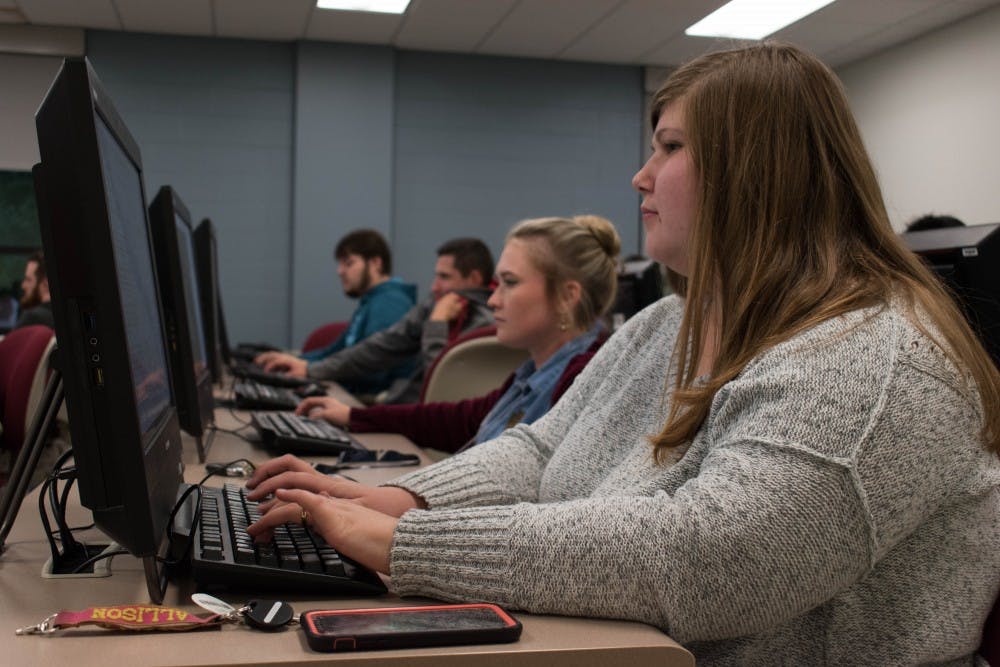CMU educates students during Cybersecurity Awareness Month

Genesee senior Allison Spohn (right) and Eaton Rapids senior Samantha Ovresat play capture the flag on Oct. 2 at a Cyber Security Event Practice event in Grawn Hall.
With Cybersecurity month in full swing, business information systems faculty and the Cyber Security Club are working to make Central Michigan University students aware of the importance of cybersecurity.
“No matter what you go into, any major, you are going to have to deal with cybersecurity and be affected by it," said Cyber Security Club President Josh Marzic, a Delton senior.
The group is working to spread the word about cybersecurity and make the CMU community safer while online.
In addition to hosting Cybersecurity Day on Oct. 11, staff and students have been hanging tips up in Grawn Hall to raise awareness.
Business information systems faculty member Denise McBride worked with students to compile the tips and has been hanging them up leading up to Cybersecurity Day.
"On our displays, we are doing a cybersafety tip as we're counting down to this event," McBride said.
Some tips focus on raising awareness, including:
- Only use sites that begin with https:// when shopping or banking online
- Don't respond or click on links from people or organizations you don't recognize
- Use your personal hotspot in public places, they're more secure than free Wi-Fi
- Secure your Wi-Fi network and digital devices by changing the factory set password and username
Other tips include cybersecurity myth, such as:
- #Cybersecurity Myth: Young people are better at cybersecurity than others. NOPE! Age is not directly correlated to better online safety practices and everyone needs to be educated on how to #BeCyberSmart.
- #Cybersecurity Myth: New software and devices are automatically secure. NOPE! Just because something is new, doesn’t mean it’s secure. When you purchase new tech, update its software and change the default password. #BeCyberSmart
Marzic stressed the importance of only using a password for one site and always updating software.
"The little annoying box that says update, it's telling you to update for a reason," Marzic said.
Business information systems faculty member Susan Helser said it's already easy enough for hackers to get in and steal identities with basic demographic information. She advises not making it even easier.
Marzic mentioned how important it is not only important for people to go into the cybersecurity field, but for everyone to be aware and educated.
“Cybersecurity seems like a technical field, but it’s really not,” Marzic said. “It’s more of a persistence and a troubleshooting, problem solving. A lot of people don’t get into because they think it’s really technical, but it’s really not bad.”






